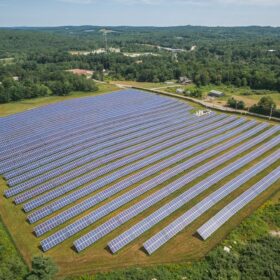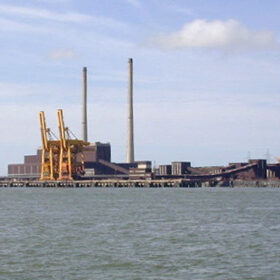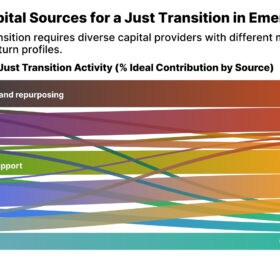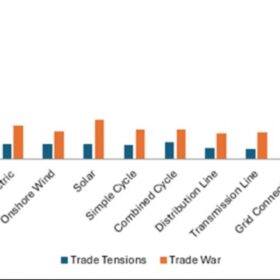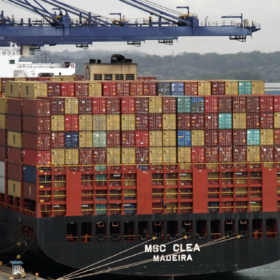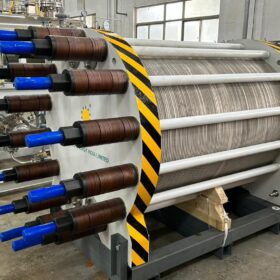Polysilicon glut may reverse into shortage by 2028, says Bernreuter
China’s polysilicon output hit 3.25 million metric tons (MT) in 2024, driving global prices below $4.50/kg, says Bernreuter Research. The Germany-based market analytics firm warns the market could swing to a shortage by 2028 if capacity cuts overshoot.
Mitsubishi announces $3.9 billion investment in U.S. community solar
Nexamp will receive investment to build community solar projects, reported Tokyo-based news outlet Nikkei.
Ireland shuts last coal plant, becomes 15th coal-free country in Europe
Moneypoint in County Clare, Ireland, joins the ranks of other European nations exiting coal by shutting off power generation at its sole remaining coal plant. Industry observers say Ireland’s increased renewable energy generation in recent years, particularly in wind, has contributed to this milestone. Moneypoint now functions as a backup oil burner under emergency instruction, but it is no longer active in the wholesale electricity market.
Targeted co-financing to support a just transition in emerging economies: IEEFA
Supporting a Just Transition in emerging economies requires not only large-scale capital for infrastructure such as renewables but also targeted financing for communities and small businesses. Capital should be matched to specific activities based on risk and impact, says a new report by the Institute for Energy Economics and Financial Analysis (IEEFA).
How the EU’s Omnibus will impact Indian companies?
The Omnibus Proposal’s sustainability mandates can either unlock new market opportunities and enhance India’s global standing, or create trade barriers that can damage brand’s reputation and hamper profits. Indian businesses can’t afford to ignore this shift.
India’s solar backbone can’t be outsourced: A case for secure, homegrown inverters
In a world where electricity defines sovereignty, allowing foreign-made devices to sit at the core of India’s solar infrastructure is nothing short of national negligence. In today’s age, power is not just electricity—it is sovereignty. We cannot afford blackout-level vulnerabilities induced by foreign-made solar inverter hardware with security loopholes.
Tariffs could drive US solar, storage costs up 50%
A recent Wood Mackenzie report examines two possible tariff scenarios and concludes that costs will skyrocket for both utility-scale solar development and battery energy storage systems.
“Time is of the essence” to safe harbor solar components to secure U.S. tax credits
Projects can maintain tax credit eligibility if 5% of total capital expenditure is incurred before legislative changes take effect.
US solar group urges trade panel to avert duty-free import surge
A letter from the American Alliance for Solar Manufacturing says the US Trade Commission must act quickly to ensure tariff rulings are in place before a temporary gap creates an opportunity for solar components to be imported duty-free.
Why renewable project execution needs speed and policy synergy
Renewable energy projects that should take 12-18 months to complete often take twice that. More often than not, land acquisition challenges, regulatory overreach and delayed transmission planning are the reasons behind this.
